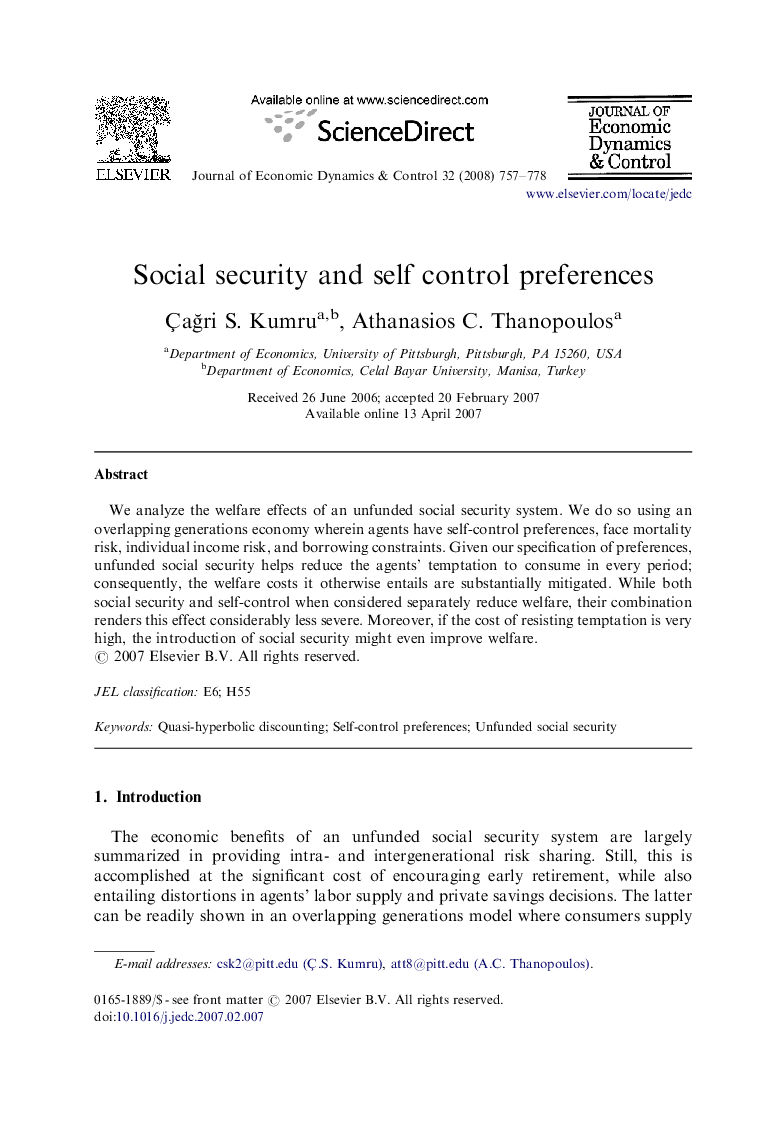| Article ID | Journal | Published Year | Pages | File Type |
|---|---|---|---|---|
| 5099413 | Journal of Economic Dynamics and Control | 2008 | 22 Pages |
Abstract
We analyze the welfare effects of an unfunded social security system. We do so using an overlapping generations economy wherein agents have self-control preferences, face mortality risk, individual income risk, and borrowing constraints. Given our specification of preferences, unfunded social security helps reduce the agents' temptation to consume in every period; consequently, the welfare costs it otherwise entails are substantially mitigated. While both social security and self-control when considered separately reduce welfare, their combination renders this effect considerably less severe. Moreover, if the cost of resisting temptation is very high, the introduction of social security might even improve welfare.
Keywords
Related Topics
Physical Sciences and Engineering
Mathematics
Control and Optimization
Authors
ÃaÄri S. Kumru, Athanasios C. Thanopoulos,
